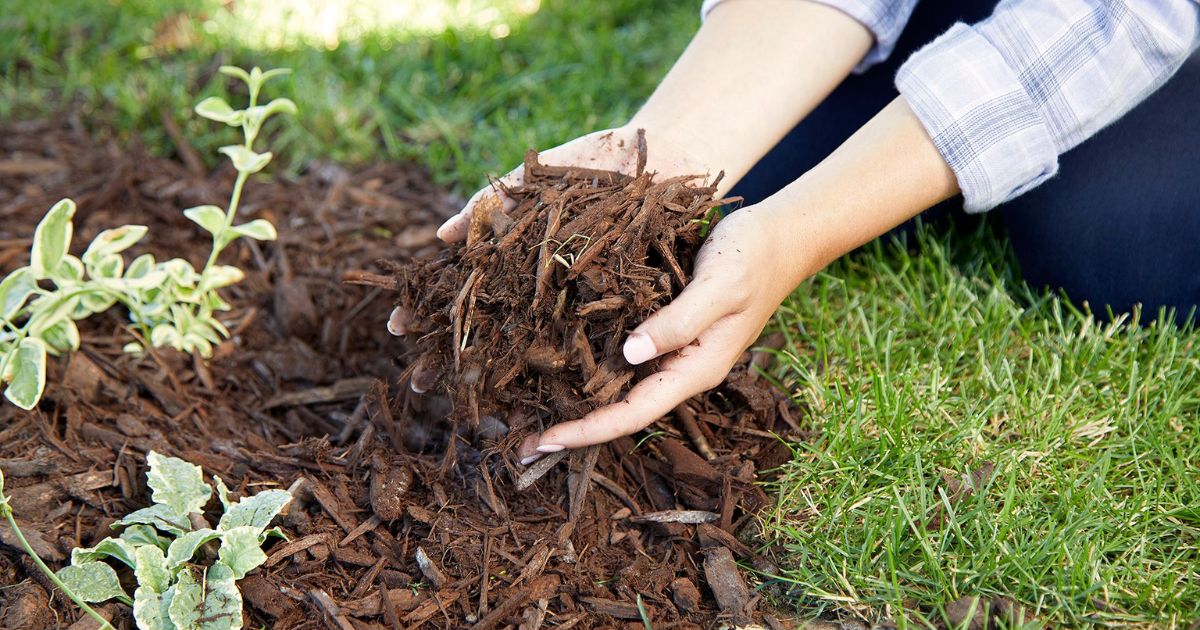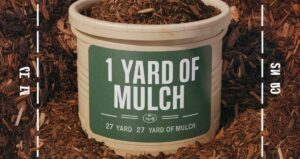Do you ever find yourself wondering, “What does a bag of mulch weigh?” Well, you’re in luck! Because in this article, we’ll explore the factors that affect the weight of mulch, the different types of mulch and their weights, as well as the impact of bag sizes on mulch weight. By the end, you’ll have a better understanding of how to estimate the weight of mulch for your next project. So, if you want to feel like you belong in the world of gardening and landscaping, stick around and let’s dive into the fascinating world of mulch weights together!
Key Takeaways
- Moisture content affects the weight of mulch
- Different types of mulch have different densities
- Bag size determines the amount of mulch and its weight
- Calculating weight helps determine the right amount of mulch
Factors Affecting Mulch Weight

When you purchase a bag of mulch, the weight can vary depending on several factors. One of the main factors that can affect the weight of mulch is the moisture content. Mulch that has a higher moisture content will naturally be heavier than mulch with lower moisture content. Additionally, the packaging materials used can also impact the weight of the bag. Some packaging materials may add extra weight to the bag, such as plastic bags or heavier paper bags. It is important to consider these factors when purchasing mulch, as the weight of the bag can determine how much mulch you will need for your gardening or landscaping projects. Now that we have discussed the factors affecting mulch weight, let’s move on to exploring the different types of mulch and their respective weights.
Different Types of Mulch and Their Weights
To determine the weight of different types of mulch, you can refer to the following information. Mulch density variations play a significant role in determining the weight of the mulch. For example, hardwood mulch typically weighs between 400 and 800 pounds per cubic yard, while pine straw mulch weighs around 100 pounds per cubic yard. Another factor that impacts mulch weight is moisture content. Wet mulch will weigh more than dry mulch due to the water content. It’s important to note that the weight of mulch can vary depending on the specific type and its moisture level. Understanding these variations in mulch density and moisture content will help you accurately determine the weight of different types of mulch for your landscaping needs.
Bag Sizes and Their Impact on Mulch Weight

Bag sizes can greatly impact the weight of mulch you purchase. The size of the bag determines the amount of mulch it can hold, and consequently, its weight. Here are four key points to consider regarding the impact of bag size on mulch weight:
- Larger bags, such as those that hold 3 cubic feet of mulch, can weigh around 40 pounds. These bags are suitable for larger gardening projects or for individuals who require a significant amount of mulch.
- Smaller bags, typically holding 2 cubic feet of mulch, weigh approximately 30 pounds. These bags are more manageable and ideal for smaller gardening areas or for individuals who need less mulch.
- The weight of the mulch will also vary depending on its moisture content. Wet mulch can weigh more than dry mulch, so it is essential to consider this when estimating the weight of the bag.
- Regardless of bag size, using mulch in gardening offers numerous benefits. It helps retain soil moisture, suppresses weed growth, and regulates soil temperature, promoting healthier plants and reducing the need for excessive watering and weed control.
Considering the impact of bag size on mulch weight is crucial for planning your gardening projects effectively.
Average Weight of a Bag of Mulch
You might be wondering how much a bag of mulch typically weighs. The average weight of a bag of mulch can vary due to mulch density variations. Mulch density refers to how tightly the mulch is packed together in the bag. Different types of mulch, such as wood chips or shredded bark, have different densities, which can affect their weight. Mulch weight can also be calculated based on volume. By knowing the volume of the bag, you can estimate the weight using the density of the specific type of mulch. It is important to consider these factors when purchasing mulch to ensure you get the right amount for your needs. Remember, mulch weight and volume calculations can help you determine how much mulch you will need for your gardening or landscaping projects.
Tips for Estimating Mulch Weight for Your Project

Estimating mulch weight for your project requires careful consideration and calculation. To help you in this process, here are four tips for estimating mulch quantity and calculating mulch coverage:
- Measure the area: Start by measuring the area where you plan to spread the mulch. Multiply the length and width to get the square footage.
- Determine the desired depth: Decide how thick you want the mulch layer to be. A common depth is around 2-3 inches, but it can vary depending on your needs.
- Calculate the volume: Multiply the area by the desired depth to get the volume in cubic feet. This will give you an estimate of how much mulch you’ll need.
- Convert to weight: Different types of mulch have varying densities, so it’s essential to know the weight per cubic foot. Multiply the volume by the weight to determine the approximate weight needed.
Conclusion
So, if you’re wondering about the weight of a bag of mulch, it can vary depending on factors such as the type of mulch and the bag size. However, on average, a bag of mulch typically weighs around 40 pounds. While some may argue that estimating mulch weight is difficult, following our tips can help you accurately determine the weight for your project.



















